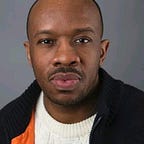Candid Blackness: How We Relate To The Show BMF As A People
As I, and millions of other Black people especially, watch characters Terry & Meech on the hit show BMF, a lot of us are aware of this life, where it comes from, and why it has been lived by young Black males — and young Black females, over the years in some of the most challenged and underserved communities across the country. We can relate to these characters who are helping to tell stories that may or may not have happened in the life of Big Meech.
With a pounding single from 50 Cent featuring melodic vocals from veteran crooner Charlie Wilson, the message drives and drives and we see episode after episode where Terry & Meech survive doing things young Black oppressed people do when the options have never been great for us in this country. How are Black people — who are reading the “good book” — supposed to thrive in a city like Detroit? How many more politicians and policymakers will we have to educate or reach out to about the conditions existing in disinvested communities in the United States?
I see my friends and family in the well-written and crafted show. I see some of the people I grew up with on the west side of Rockford, Illinois in the storytelling about Demetrius Flenory — who the show is based on. I grew up seeing and witnessing the same kind of lifestyles and experiences portrayed in BMF. Many of us have. Many of us still do. The trappings of “the projects” where many of us have grown up in or lived in allow for the stories being told, the poverty you witness, and the harms and the hurts that come along with living in poverty.
I am relating to a lot of the music and the fashion in the series as well. I am sharing memories with Black people who grew up in urban dwellings where the music captured our many struggles, and how we dressed to express ourselves or to keep up with the people who had the means to invest in the fashions of those times. Terry & Meech look like famed hip-hop/rap group Run-DMC. They capture a 1980s Detroit that looks and feels like a 1980s New York City or a 1980s Chicago. Even through all of the hustling, the madness, the Blues we were singing we used fashion as an outlet.
Who are any of us to point fingers at Terry & Meech when all we had — a lot of us — were options politicians, policymakers, and the like helped create for Black and Brown people in North American ghettos? Who are we to degrade or to talk down on the people represented in these stories when we know racism, redlining, and over-policing were happening in cities like Detroit? We Black people can enjoy the art of the series but at the same time relate to the harsh realities of selling drugs or robbing others just to get by. Welcome to the heart of the ghetto!
I had friends who lived much like Terry & Meech as a west side Rockford teenager. Many of them I have known for most of my life. We were in the streets, in neighborhoods overwhelmed by poverty, or by simply not having enough too many times in our lives. When Meech paid the mortgage on the house his family was living in, many of us can relate to that. What are you supposed to do as a leader with financial smarts when your father and mother do not make enough to pay the mortgage?
Being Black in the United States has been a crime since we have been here. Being Black and poor in North America is a very hard struggle. Being Black in North America is what will develop people such as Terry & Meech. But all they are doing is simply trying to survive, trying to provide better for their parents and their little sister. Shame on this country for not providing those opportunities to people who have always been struggling or just getting by! No matter how we look at their situation, Big Meech is legendary and there are a lot more Black women and men like him in the same situation.
I will continue to enjoy the show knowing there are millions of us tuning in when a new episode is released. We can share memories or talk about the trials of ghetto life. We can also talk about the music on the show and the fly fashions Terry & Meech dress up in to be who they are. The show captures a place in time that is overdue and is exciting to people, especially in my generation, who grew up in the same conditions with the same kinds of hope and drive. I am glad we get to relate together as a people!
